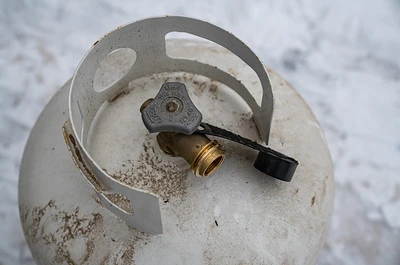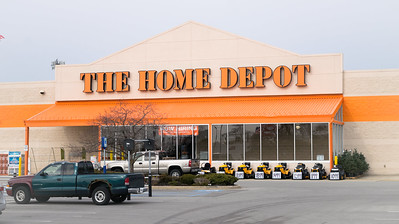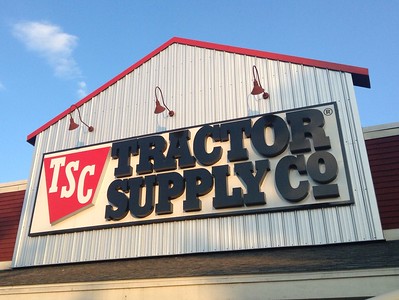
When you Google “where to refill 20-lb propane tank near me,” you’ll find a variety of places that offer this service. The actual results will depend on your location, but they may include:
- Gas Stations: Many gas stations offer propane refilling services. It’s a good idea to call ahead to ensure they offer this service.
- Hardware Stores: Large chain stores like Home Depot or Lowe’s often provide propane tank refilling services. Local independent hardware stores may also offer this service.
- Propane Specialists: There are businesses that specifically deal with propane sales and services. They’ll certainly be able to refill a 20-lb propane tank.
- Camping or Outdoor Stores: Stores that specialize in camping or outdoor equipment often provide propane refilling services since propane is commonly used for camping stoves and heaters.
- Grocery Stores: Some grocery stores offer propane exchange services where you turn in your empty tank for a filled one.
- RV Parks: Some RV parks also offer propane refilling services, as propane is commonly used in recreational vehicles.
- Grill or Barbecue Stores: Stores that sell grills often offer propane refills since propane is frequently used for barbecue grills.
- Farm Supply Stores: Stores like Tractor Supply Co often have propane refilling stations.
- U-Haul Locations: Many U-Haul rental locations offer propane refilling services.
- Marinas: If you’re near the water, some marinas provide propane refilling services as propane is often used on boats.
- Warehouse Clubs: Large warehouse stores like Costco or Sam’s Club often have propane refilling services.
- Garden Centers: Some large garden centers or nurseries may offer propane refilling services.
Remember, it’s always best to call ahead to ensure that the service is available at a specific location and to check their hours of operation. There are also many online resources that can help you find the nearest propane refilling station, such as the Propane Finder tool offered by the Propane Education & Research Council.
When You Are in Rural Area, How Can You Locate a Propane Station
If you’re residing in a less densely populated area, locating a propane refill station might be a bit of a task. However, by making use of certain tools and strategies, you can simplify the process. Here’s how:
- Web Search: Leveraging popular search engines like Google or Bing can prove to be highly beneficial. You can simply look for propane refill stations nearby by typing “propane refill stations in my vicinity” or similar phrases.
- Propane Locator Platforms: There are specific websites dedicated to propane-related services. They often feature tools that allow you to locate the nearest propane refill station. The Propane Education & Research Council’s Propane Finder is a prime example of such tool.
- Mobile Applications: A number of mobile apps like GasBuddy can assist in locating the closest propane refill stations.
- Local Insights: Oftentimes, local residents can provide valuable information about the services available nearby. Engage with your neighbors or local businesses to gather insights.
- Inquire at Gas Stations and Retail Stores: In rural settings, it’s common for gas stations and retail stores to offer propane refilling services. It can be helpful to inquire directly.
- Connect with Propane Suppliers: Prominent propane suppliers often list their refill stations on their official websites. Additionally, they might offer propane delivery services to less urban areas.
- Explore Local Campsites or Recreational Vehicle Parks: Campsites or RV parks often provide propane refilling services or can guide you to the nearest service station.
Always remember to plan in advance to avoid running out of propane. Having a backup filled propane tank can also be beneficial in emergencies.
Locating Nearby Refill Stations is Important
Knowing the locations of nearby propane refill stations is crucial for various reasons. This knowledge not only ensures convenience but also helps to manage cost and maintain safety.
Why It’s Crucial to Know About Nearby Refill Stations
Continuity of Services: Propane is used in numerous applications, from heating homes and powering appliances to fueling grills and vehicles. If your propane supply runs out unexpectedly, it can disrupt these services and cause significant inconvenience.
- Emergency Preparedness: Emergencies can happen at any time. Having the information about a nearby refill station means you can quickly and efficiently replenish your propane supply when needed.
- Safety: Traveling long distances with a propane tank can pose safety risks, especially in adverse weather conditions or heavy traffic. A nearby refill station minimizes transportation time and potential hazards.
Cost-Effectiveness and Convenience of Local Refill Stations
Cost Savings: Traveling long distances to refill a propane tank can result in significant fuel costs. By locating a refill station nearby, you save on these unnecessary expenses.
- Time Efficiency: Refilling your tank at a local station saves time compared to traveling farther. This increased efficiency allows for better time management and less disruption to your schedule.
- Flexibility: Local refill stations often offer more flexible hours of operation, making it easier for you to refill your tank at a time that suits you.
- Customer Service: Local businesses tend to provide personalized service, fostering a sense of community. If you become a regular customer, they might even offer you discounts or other perks.
By knowing your local propane refill options, you ensure a steady, cost-effective supply of propane with the least amount of hassle. It is an essential aspect of efficient propane usage and management.
How Much Does It Cost to Refill a 20-lb Propane Tank
The cost of refilling a 20-lb propane tank can vary significantly depending on your location and the current market price of propane. On average, you can expect to pay between $18 to $30 to refill a 20-lb propane tank. Some locations may offer a flat rate for refills, while others may charge per gallon. Given that a 20-lb propane tank holds approximately 4.7 gallons of propane, a per-gallon rate will be multiplied by this amount.
Remember, propane prices can fluctuate based on a variety of factors including crude oil prices, demand, and even the weather. Therefore, for the most accurate and up-to-date information, it’s best to call local propane providers in your area.
Read related article: Check Tank weight When Exchanging – Don’t Get Shortchanged
How to Save Money When Refilling Your Propane Tank
Looking to make the most of your money when refilling your propane tank? Here are some straightforward ways to save:
Buy During Off-Peak Seasons
- Refill in Warm Months: Propane usually costs less during the warmer seasons when the demand is lower. Refill then to save some cash.
- Keep an Eye on Prices: Some apps or websites track propane prices. Check them out and refill when prices are low.
Loyalty Programs and Discounts
- Join Loyalty Programs: Some refill stations offer loyalty cards. Use them regularly and you could get discounts or even a free refill.
- Group Discounts: If you’ve got multiple tanks, or if your neighbors need refills too, ask for a bulk discount.
- Watch for Special Deals: Stations might have discount days or special offers. Follow them on social media or join their mailing list to stay updated.
- Just Ask: Sometimes, asking directly can reveal unadvertised deals or discounts. Next time you’re refilling, ask if they have any special offers.
Being a bit strategic and keeping these simple tips in mind can lead to substantial savings over time. So, the next time you need a refill, remember these strategies to ensure you get the best deal!
Why Refilling Your Propane Tank is a Better Choice Than Exchanging
When your propane tank runs out, you’re faced with a choice: Do you refill your current tank, or swap it for a new one at an exchange station? While both options might seem convenient, there are some great reasons why you should consider refilling over exchanging.
Save Money with Refilling
- Pay Only for What You Get: When you refill, you’re paying for the exact amount of propane added to your tank. In contrast, many exchange stations charge a flat rate, regardless of the tank’s actual fill level.
- Get a Full Tank Every Time: Some exchanged tanks aren’t filled to the top, giving you less propane for your money. When you refill, you can make sure your tank is 100% full.
Other Benefits of Refilling Your Propane Tank
- Know Your Tank’s History: By keeping and refilling your tank, you know its history. Has it been damaged or exposed to rough conditions? With exchanged tanks, it’s a mystery.
- Go Green: Refilling means reusing. By refilling your existing tank, you’re being environmentally conscious by reducing the need for producing more tanks. Read this page to learn more.
- Support Your Community: Refilling often means you’re supporting local businesses, which is always a plus for your community.
- Avoid Unpleasant Surprises: With your own tank, you’re familiar with its quirks. Exchanged tanks can sometimes come with unexpected issues, like leaky valves.
To sum it up, refilling your propane tank can offer you better value for your money, more peace of mind, and added benefits for your community and the environment. So next time you run low, think twice before swapping – a refill might be the better choice for you!
Safety First: Best Practices for Transporting and Refilling 20-lb Propane Tanks
Propane is a versatile fuel, but it also comes with its own set of safety considerations. Whether you’re transporting a tank to a refill station or refilling it yourself, it’s crucial to prioritize safety. Here’s a guide to help you do just that.
Handling Propane Tanks During Transport
- Upright Position: Always transport propane tanks in an upright position to prevent the relief valve from being blocked.
- Secure the Tank: Use straps or a stable base to prevent the tank from rolling or moving around in your vehicle.
- Ventilation: Ensure that your vehicle is well-ventilated. Avoid transporting a propane tank in the trunk of a car. Instead, use the back of a pickup or an open trailer when possible.
- Limit Transport Time: Don’t let a full or empty tank sit in your vehicle longer than necessary. The quicker you can transport and unload, the better.
Recognizing a Compromised Tank
- Check for Rust: A rusty tank can be a sign of compromise. Regularly inspect your tank, especially the bottom, as rust can weaken its structure.
- Dents or Damages: Any visible dents, especially deep ones, might compromise the integrity of the tank.
- Old Age: Propane tanks have an expiration date. Typically, it’s 12 years from the manufacture date and can be found stamped on the collar of the tank. If it’s past its date, consider replacing it.
- Faulty Valves: If the valve on your tank doesn’t seal properly or releases an odor even when closed, it might be time for a replacement.
In Conclusion
Knowing your local propane refill options is an indispensable part of managing your propane needs. It ensures uninterrupted service, efficient time management, cost savings, and safety.
By strategically locating your closest refill stations, you’re investing in not just the convenience, but also the longevity of your propane-powered appliances and systems. Remember, the key to successful propane usage is proactive management and regular refill.
For those living in rural areas, leveraging online resources and local insights can make this task easier. So, keep your propane tanks full and your services running smoothly by locating your nearest propane refill stations today. Stay prepared, stay safe, and keep the flame of convenience burning with regular propane refills.

Mike is an experienced propane technician with over 15 years of professional experience in the field. He has dedicated his career to helping customers with their propane needs, from installation to maintenance and repair. Together with Jeremy, he co-founded this website to provide useful information and guidance to customers seeking reliable propane services.







